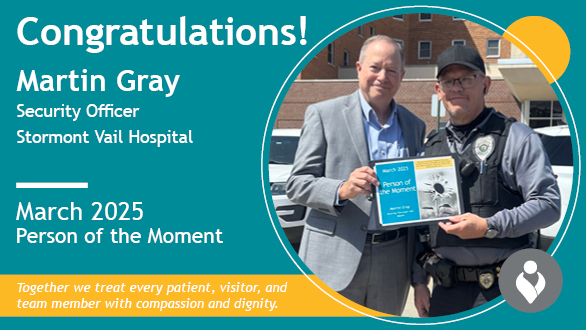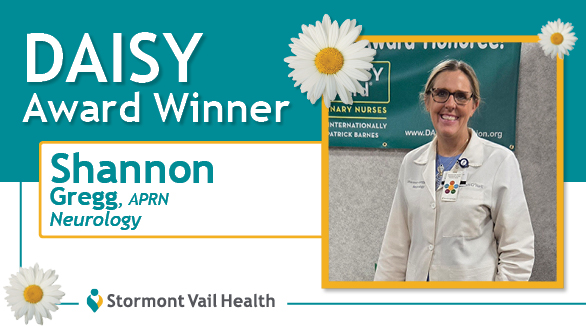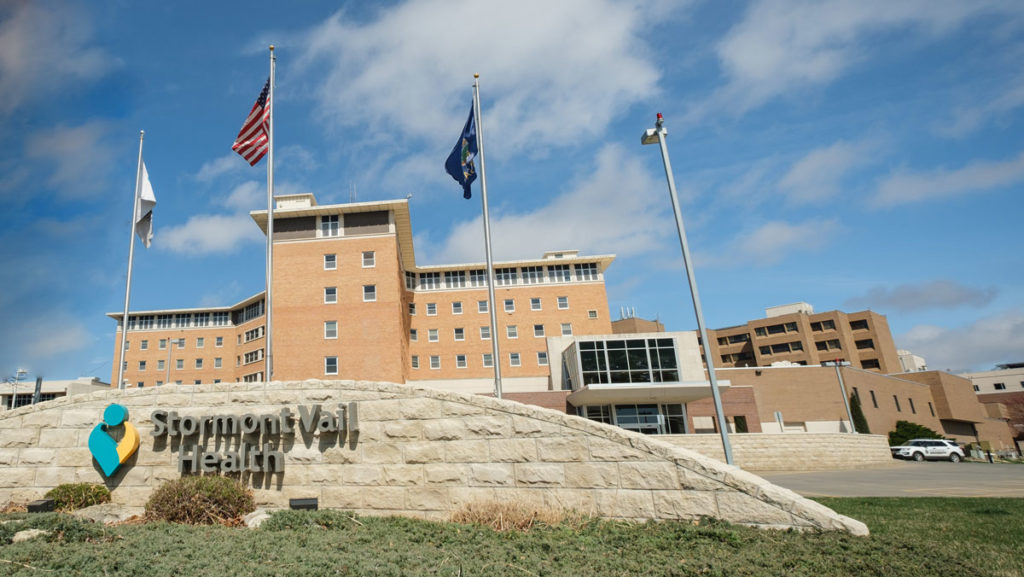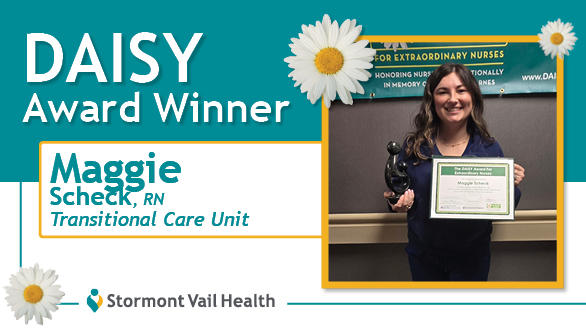Newsworthy
National Cancer Survivors Day is June 4
Nearly everyone knows someone who has cancer or had it themselves. As many studies have found, including a 2022 report from the American Cancer Society, next to heart disease, cancer is the second most-common cause of death among Americans, with an estimated 1,670 deaths each day in 2022.
In the U.S., 16.9 million people had a history of invasive cancer, “most of whom were diagnosed many years ago and have no current evidence of the disease.” National Cancer Survivors Day, which occurs on the first Sunday in June since its founding in 1988, focuses on the wide-ranging challenges these survivors face on the road to recovery while celebrating life.
On National Cancer Survivors Day, healthcare organizations, support groups, and other advocates host educational events, awareness activities, and celebration events around the U.S. to promote awareness of resources. These efforts aim to help survivors and their families live life to the fullest after a diagnosis.
“Every person diagnosed with cancer is considered a ‘survivor’ from the time of their cancer diagnosis,” Robin McKay, an APRN specializing in oncology and hematology at the Cotton O’Neil Cancer Center. “The survivorship period of treatment is typically defined as after the initial treatment phase is concluded and they are in maintenance therapy or surveillance.”
National Cancer Survivors Day Raises Awareness of Survivors’ Unique Needs
Significant progress has been achieved against cancer, and the survival rate is on the rise. Nevertheless, as the number of cancer survivors grows, so does the need to learn more about them and the unique challenges they face.
For example, many people who have had cancer experience significant uncertainty after receiving treatment. The question of “What next?” can be daunting for anyone, but especially survivors, who often report new perspectives/mindsets/outlooks about life.
“One of the most common things I hear from survivors is ‘scanxiety’ which is a very real phenomenon in cancer survivors,” Robin said. “This occurs typically in the days leading up to a scan or follow-up due to fear of recurrence. Typically the acute anxiety resolves after having the scan and follow-up visit, but the fear of recurrence does lurk just under the surface for many survivors.”
This change is just one of many that can hinder their ability to return to “normal” life.
“Other common challenges that we see include finding a ‘new normal’ with body changes both physically and mentally after treatment,” said Robin. “These can affect quality of life, ability to work as well as relationships. These reasons are why it takes the specialty of the entire interdisciplinary team to be able to support each survivor where they are uniquely struggling.“
Other changes often include:
- Diet changes
- Physical changes, like scars
- New or different support groups
- Limitations on activities like spots or exercise
- Mental health changes, like survivors’ guilt or PTSD
National Cancer Survivors Day is a reminder that just because treatment ends doesn’t mean advocacy and support should. As with any other population, it’s essential to address these needs, which may include:
- Financial challenges, like soaring medical expenses, limited insurance coverage, or finding and staying employed.
- Physical issues, particularly those caused by cancer treatment side effects, such as lower bone density, cognitive functioning, fertility; higher rates of fatigue, insomnia, or pain; hot flashes, peripheral neuropathy, and more.
- Mental health challenges, which social stigma and financial obstacles can worsen.
- Care fragmentation, which can occur when specialists work in their own silos and overlook the need for integrated psychosocial support.
Resources for Cancer Survivors and Families
The type of cancer someone has and the treatment they receive may differ, but recovery (and accompanying journey) often feels overwhelming. Here are a few resources for cancer survivors and their families that may help:
- The Cancer Support Community’s Cancer Support Hotline connects people to experienced staff via phone or online chat to make it easier to navigate the complex realm of a cancer diagnosis.
- American Cancer Society Patient Programs and Services offers a 24/7 Cancer Helpline, lodging grants, online support groups, and more.
- National Cancer Institute Division of Cancer Control & Population Sciences offers resources for survivors and caregivers, from educational videos to guides for post-diagnosis wellbeing to follow-up care tips, and more.
Stormont Vail Survivorship Program
The Cotton O’Neil Cancer Center offers a survivorship program for recovering patients to ease these worries while receiving ongoing support from an interdisciplinary care team. The goal is to address long-term effects of treatment, provide cancer surveillance, and focus on wellness.
During survivorship visits, patients meet with their oncologist or nurse practitioner to receive a summary of their care completed for cancer treatment. They assess ongoing side effects from treatment causing concern including physical symptoms as well as emotional, psychosocial or spiritual concerns.
To meet your individual symptom management needs and support your wellness goals, providers may include members of the interdisciplinary team, including:
- Financial counselors
- Palliative medicine staff
- Mental health experts
- Spiritual care ministers
- Members of the lymphedema clinic
- Additional specialty support service members as needed
- Oncology nurses, social workers, dieticians, pharmacists and rehabilitation therapists
Tips for Coping with Survivorship
Develop a Survivorship Care Plan
A survivorship care plan is “a record of your cancer and treatment history, as well as any checkups or follow-up tests you need in the future. It may also list possible long-term effects of your treatments, and ideas for staying healthy.”
When creating a survivorship care plan, consider including information such as:
- Details about the diagnosis
- Symptoms and side effects
- Follow-up care instructions
- An overview of previous and current treatments
- Who to call for assistance managing side effects
- Who to contact on your healthcare team with questions or concerns
Join a Support Group
Regularly interacting with other survivors is essential to wellbeing in recovery at every stage in the process. Hearing others’ stories and experiences can provide unique insights and perspectives, make it easier to locate effective resources, and more.
Eat Healthy
Cancer survivors often experience changes in appetite and nutritional needs, which can hinder physical recovery.
“Proper nutrition is an essential component after cancer treatment,” Allison Gunnoe, a clinical dietitian at the Stormont Vail Health Cotton O’Neil Cancer Center, said. That’s because certain cancer treatments can cause weight loss, gain, or loss of muscle mass and strength. Achieving proper nutrition can help one to regain energy and help speed up the recovery process.
“Eating a well-balanced diet provides the body the nutrients it needs for the recovery and healing process. But it’s also normal to have some lingering side effects from treatment such as altered taste, appetite changes, and fatigue.”
Allison and other experts recommend eating plenty of fruits and vegetables, whole grains instead of simple carbs, and limiting red and processed meats.
Stormont Vail Health Supports National Cancer Survivors Day
Cancer is a unique personal experience, as is survivorship. While everyone’s journey differs, the meaning of survivorship – to be someone who takes a proactive, positive part in their own care – is the same. National Cancer Survivors Day applauds those who have it within themselves to take control by taking action.
Sources
American Cancer Society. Cancer Facts & Figures 2022. Atlanta: American Cancer Society; 2022.
Ben-Ari, E. (2022, June 7). Meeting Psychosocial Health Needs of Cancer Survivors – NCI. Www.cancer.gov. https://www.cancer.gov/news-events/cancer-currents-blog/2022/psychosocial-cancer-survivors-patricia-ganz
Foundation, N. (2023, May 4). National Cancer Survivors Day® 2023 Brings Together Cancer Survivors, Local Communities to Raise Awareness of Survivorship Issues. National Cancer Survivors Day®. https://ncsd.org/2023-press-release/
Sultan, A. (2021, June 6). National Cancer Survivors Day – June 6. National Today. https://nationaltoday.com/national-cancer-survivors-day/
3 Tips to Remember for National Cancer Survivors Day. (n.d.). Cancer Support Community. Retrieved May 25, 2023, from https://www.cancersupportcommunity.org/blog/3-tips-national-cancer-survivors-day




